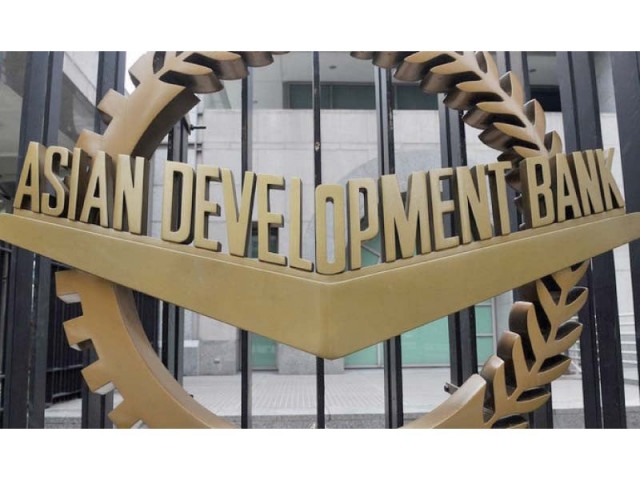Govt okays $300m expensive loan
Loan being taken to improve tax compliance that only requires efficient tax dept

The interim government on Thursday approved four development schemes costing Rs126 billion and also gave the go-ahead for a highly expensive loan of $300 million for improving tax compliance, an objective that does not need any money but a strong will and an efficient tax department.
The Central Development Working Party (CDWP) approved those schemes including the concept clearance for the Domestic Resource Mobilisation Reform programme, which would be funded by the Asian Development Bank (ADB) with a $300 million loan at over 6% interest in dollar terms.
Interim Finance Minister Dr Shamshad Akhtar last week requested the ADB to approve the project in September but the lender did not agree due to some procedural issues. The loan is expected to be approved by November.
Also read PDM govt borrowed Rs907b in just one month
Despite plunging deeper into the debt trap, Pakistani authorities are taking loans for a purpose that only needs a strong will. Earlier, the Pakistan Tehreek-e-Insaf (PTI) government took a $400 million loan from the World Bank for reforms in the Federal Board of Revenue (FBR).
In spite of getting loans, the last two prime ministers and now the army chief are not happy with the FBR.
Pakistan is going to take a $300 million loan at over 6% interest for reducing tax gap to 20% of the potential tax collection. The government and the ADB have used a three-year-old base to showcase the performance and set targets.
Similarly, the loan is being taken to reduce tax payment time compared to the 2020 base year, a task that needs efficiency not foreign money.
Under other goals, Pakistan will reduce budget deficit, consolidate the single treasury account mechanism and very nominally improve foreign direct investment and domestic savings ratio – the goals that again do not need foreign funding.
A statement issued by the Ministry of Planning underlined that the CDWP cleared four development projects worth Rs126.2 billion during its meeting, chaired by Planning Commission Deputy Chairman Jehanzeb Khan.
It recommended the Thar Coal Rail Connectivity Project including last-mile connectivity with Port Qasim worth Rs56 billion to the Executive Committee of the National Economic Council (Ecnec).
The project has already been cleared by the Special Investment Facilitation Council (SIFC).
The main objective of the project is to connect Thar coal mines and Port Qasim through new rail links and is aligned with sector-specific objectives of the Vision 2025 by providing bulk transportation facilities according to the requirement of the growing economy.
The project envisages construction of a 105km new single-line railway track from Thar coal mines to the New Chhor Station and construction of an 18km double-line track, which includes 4.2km loop lines from Bin Qasim to Port Qasim.
The project has been designed to provide reliable and efficient railway infrastructure to break the geographical barriers of Thar coal and enable its transportation across the country and to provide an environmentally friendly mode of coal transportation.
If transported through railways, the environmental pollution will be minimal besides reduction in traffic congestion on roads.
The utilisation of Thar coal will bring import bill in line with Pakistan Vision 2025 and rationalise fuel cost, thus reducing the cost of electricity production besides ensuring the uplift of the local populace of Tharparkar through the generation of royalty and creation of jobs.
Coal demand in Pakistan is mainly driven by two major sectors, ie, power and cement. Demand for coal will further increase due to the upcoming capacity additions to both power and cement sectors.
With the successful commercial operation of coal power plants in Thar coal fields, it is imperative that the growing coal demand should be met through Thar coal to displace imported coal. Such initiatives have already been noticed where the upcoming coal-based power capacity addition is being designed on Thar coal.
CDWP recommended the construction of New Gwadar International Airport at an upward revised cost of Rs60.2 billion. It agreed to increase the project cost by 161%, or Rs37 billion, compared to the 2015 estimate of Rs23 billion.
The project is part of the China-Pakistan Economic Corridor (CPEC) and is facing delays of over five years.
Third revised project PC-I envisages construction of the airport along with allied facilities over an already acquired piece of land measuring 4,300 acres.
CDWP cleared the improvement of Spera Ragha Road at a cost of Rs6.1 billion. The revised project envisages improvement and widening of the existing single-lane road to a two-lane facility.
The road will connect the National Highway (N-50) with the National Highway (N-70). After completion, the project will serve as the main route to connect the central cities of northern Balochistan to southern Punjab.
At present, it is a single-lane road and is in a very bad condition and can’t be used for mobility. Locals and transporters are facing many difficulties.
The forum also cleared a scheme for repair of 600 passenger coaches and 1,200 bogies of Pakistan Railways at a cost of Rs4 billion.
Published in The Express Tribune, September 8th, 2023.
Like Business on Facebook, follow @TribuneBiz on Twitter to stay informed and join in the conversation.



















COMMENTS
Comments are moderated and generally will be posted if they are on-topic and not abusive.
For more information, please see our Comments FAQ